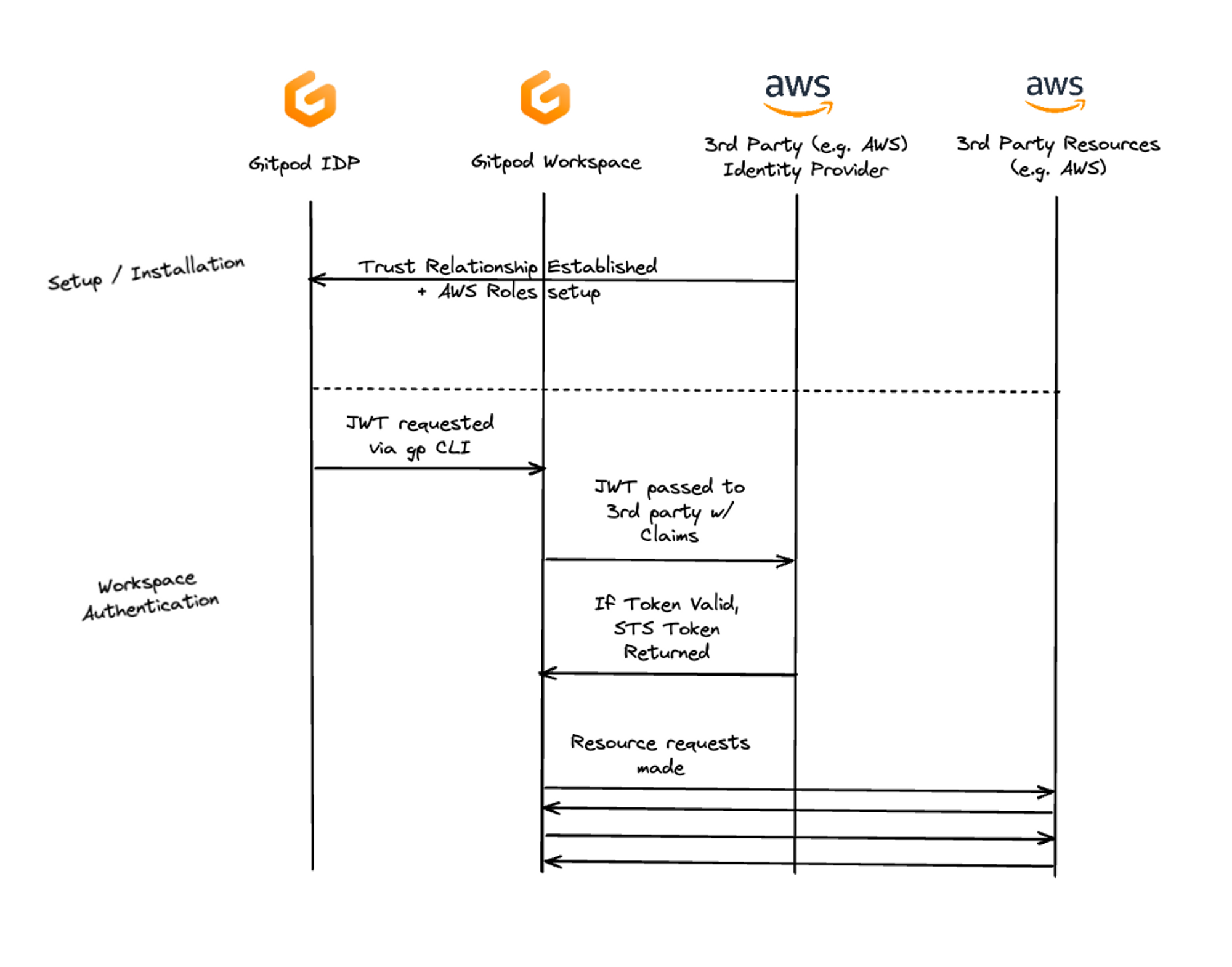OpenID Connect (OIDC) in Gitpod
You can use OIDC authentication to connect Gitpod workspaces to cloud providers or third parties such as: AWS, Azure, GCP, or secret management services like Vault. Use of OIDC integration eliminates the need to manually distribute access credentials, secrets and other key material via other methods such as environment variables.
What is OIDC?
OpenID Connect (OIDC) is a simple identity layer on top of the OAuth 2.0 protocol, which allows clients to verify identity.
OIDC leverages use of a JWT, a security token that allows the client to verify the identity of the caller. The token is a JWT that contains claims about the caller. Claims are statements about a caller and can contain information such as a name, email address or repository metadata.
OIDC provides a reliable way to establish a user’s identity, including the ability to authenticate them and get their basic profile information. It gives third-party applications a standardized, secure, and scalable method to authenticate and authorize users. When used in combination with Gitpod, it helps in automating the secure access to 3rd-party services that your workspaces might need to interact with.
Setting up OIDC Authentication with a third party
Setting up OIDC Authentication generally involves three main steps:
Establish Trust: You first need to register Gitpod with your OIDC-supported third party (like AWS, Google, etc.). This third party then becomes the audience in your JWT token generated in Gitpod.
Setup Trust Rules: The 3rd party usually allows you to configure what the configuration of the JWT claims must be to exchanged for a valid auth token. Here you can implement fine-grained controls over what access is granted.
Exchange the JWT token: Once both trust and trust rules have been established with the third party, you can use the JWT tokens generated by the
gp idp tokencommand to authorize JWT tokens to the third party.

Provider specific guides
Read more:
Gitpod CLI integration
You can retrieve a JWT token for OIDC using gp idp. To retrieve the OIDC token for the current workspace run gp idp token.
For example, to request a new OIDC JWT for example.org you’ll need to execute gp idp token --audience example.org, the output of which you can use to authenticate yourself.
Example usage
$ gp idp token --audience example.org
eyJhbGciOiJSUzI1NiIsImtpZCI6ImlkLTE2ODQ3NTc4MDY...To decode the output, use the --decode flag. Once decoded, the result will resemble the JSON object below.
gp idp token --audience example.org --decode{
"Header": {
"alg": "RS256",
"kid": "id-9445aaab5c965efa28cc62113fe0017de377c2a5589b8d8a45984032547190f3"
},
"Payload": {
"aud": ["example.org"],
"auth_time": 1695222733,
"azp": "example.org",
"c_hash": "gc_vPbUNoCT0UmXDCdp1sw",
"email": "kumquat@gitpod.io",
"email_verified": true,
"exp": 1695226333,
"iat": 1695222733,
"iss": "https://api.gitpod.io/idp",
"name": "Kumquat The Third",
"org_id": "dbe55a3c-5c06-438f-b164-a9fb732bcd84",
"sub": "https://github.com/gitpod-io/website/pull/1"
}
}💡 Important:
email_verifiedis only true if you are signed in to Gitpod via an SSO provider. If you’re only signed in with an SCM authentication provider, this field will befalse.